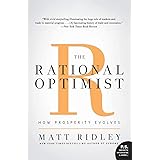Table of Contents
The Rise of Robo-Advisors
Imagine having a personal financial advisor at your fingertips, ready to help you make smart investment decisions without the hefty fees. This is the promise of robo-advisors, a revolutionary concept that is changing the landscape of automated investing. But what exactly are robo-advisors, and how are they shaping the future of finance?
- What are Robo-Advisors?
Robo-advisors are online platforms that use algorithms to provide automated, algorithm-driven financial planning services with little to no human supervision. These platforms collect information from clients about their financial situation and future goals and then use that data to offer advice and automatically invest client assets.
Robo-advisors have gained popularity in recent years due to their low fees, accessibility, and ease of use. They appeal to a wide range of investors, from millennials just starting to save for retirement to seasoned investors looking to diversify their portfolios.
- The Benefits of Robo-Advisors
One of the key benefits of robo-advisors is their low cost compared to traditional financial advisors. With robo-advisors, investors can access professional investment advice at a fraction of the cost, making it an attractive option for those looking to save on fees.
Another advantage of robo-advisors is their accessibility. Investors can access their accounts 24/7 from any device, making it convenient to check on their investments and make changes as needed. This accessibility is especially appealing to younger investors who are used to managing their finances online.
Robo-advisors also offer a level of diversification that can be difficult to achieve on your own. These platforms use sophisticated algorithms to create diversified portfolios tailored to each investor's risk tolerance and financial goals. This level of customization can help investors achieve their financial objectives while minimizing risk.
According to a report by Statista, the assets under management by robo-advisors in Canada reached $5.5 billion in 2020, a significant increase from previous years. This growth is a testament to the increasing popularity of robo-advisors among Canadian investors.
The Future of Automated Investing
As robo-advisors continue to gain traction in the financial industry, the future of automated investing looks bright. These platforms are constantly evolving to meet the needs of investors and offer new features and services to enhance the investing experience.
- The Role of Artificial Intelligence
One of the key trends shaping the future of robo-advisors is the integration of artificial intelligence (AI) into investment algorithms. AI-powered robo-advisors can analyze vast amounts of data in real-time to make more informed investment decisions and adapt to changing market conditions.
By harnessing the power of AI, robo-advisors can offer more personalized investment advice and recommendations based on individual investor preferences and market trends. This level of customization can help investors achieve better returns and navigate market volatility more effectively.
In the United States, robo-advisors have seen significant growth in recent years, with assets under management reaching $460 billion in 2020, according to a report by Cerulli Associates. This growth is driven by the increasing demand for automated investing solutions and the rise of digital-first investors.
- The Impact of Regulation
Another factor shaping the future of robo-advisors is the impact of regulation on the industry. As robo-advisors continue to grow in popularity, regulators are paying closer attention to ensure that these platforms comply with existing financial regulations and protect investor interests.
In Canada, the Canadian Securities Administrators (CSA) has issued guidelines for robo-advisors to ensure that they operate in a transparent and responsible manner. These guidelines cover areas such as client suitability, disclosure requirements, and cybersecurity measures to protect investor data.
By adhering to these regulations, robo-advisors can build trust with investors and demonstrate their commitment to ethical and responsible investing practices. This trust is essential for the long-term success and sustainability of the robo-advisor industry.
As we look to the future of automated investing, robo-advisors will continue to play a significant role in shaping the financial landscape. These platforms offer a convenient, cost-effective, and accessible way for investors to achieve their financial goals and build wealth over time. By embracing the power of technology and innovation, robo-advisors are paving the way for a more inclusive and democratized financial system that empowers investors of all backgrounds to take control of their financial futures.
I'll end by saying that I'm trying my best to make these subjects understandable and straightforward. As you read, study, and explore further, keep in mind that these little writings are just the beginning. To help you out, here are a few other stories from the world of economics to help you prepare for any eventuality:












